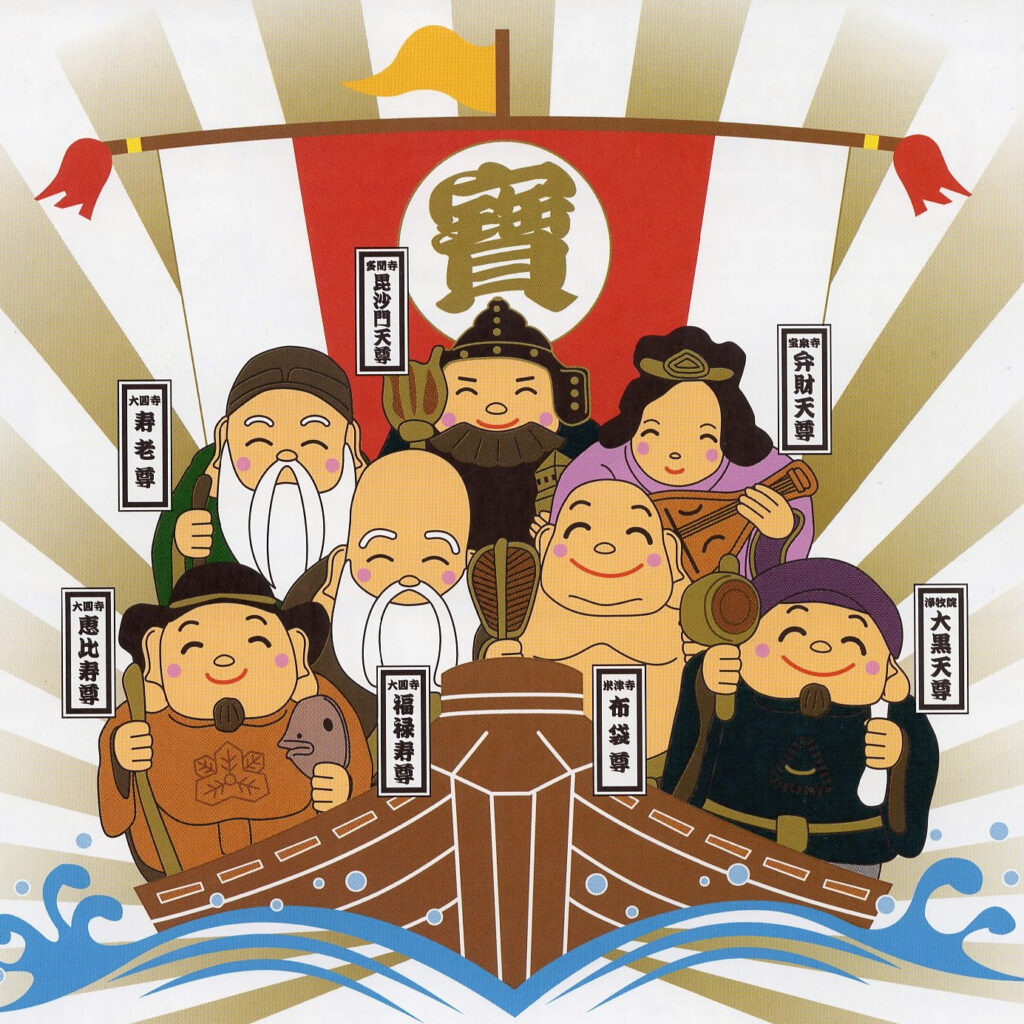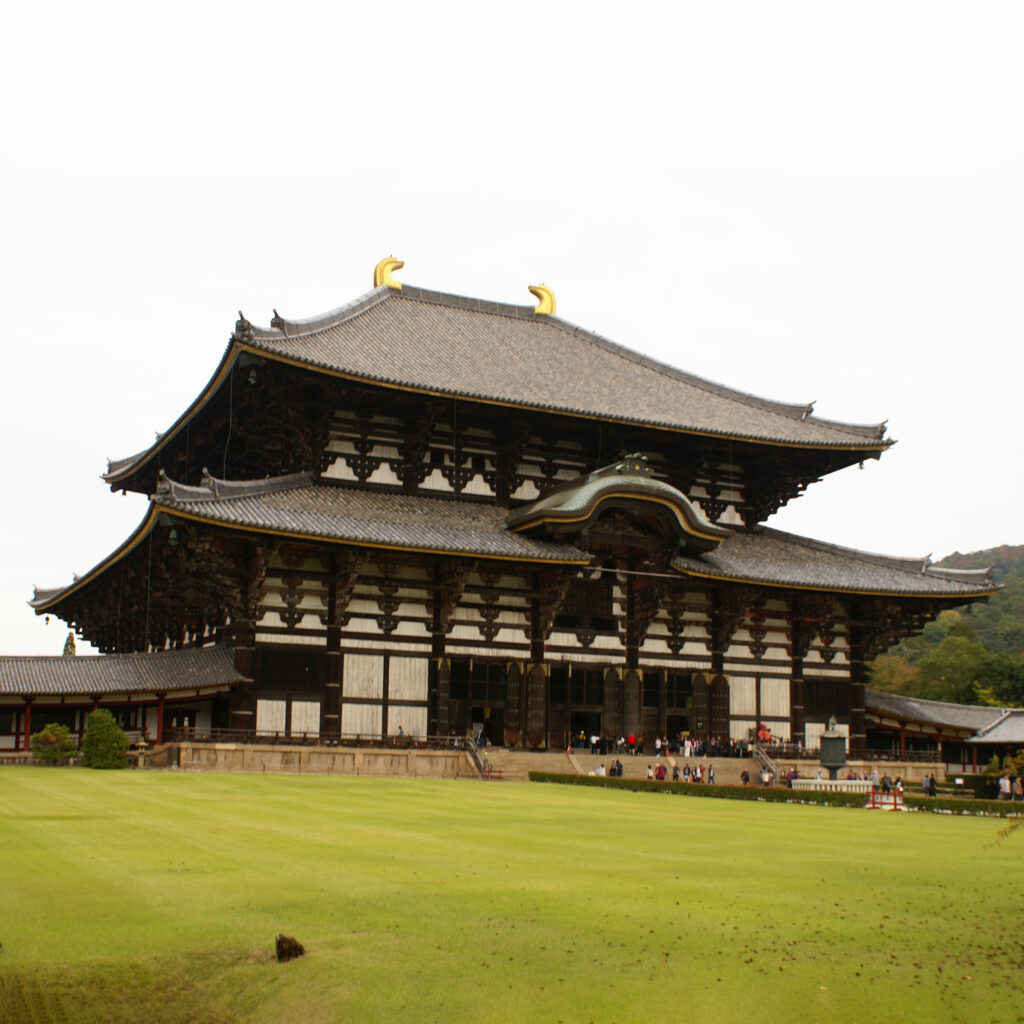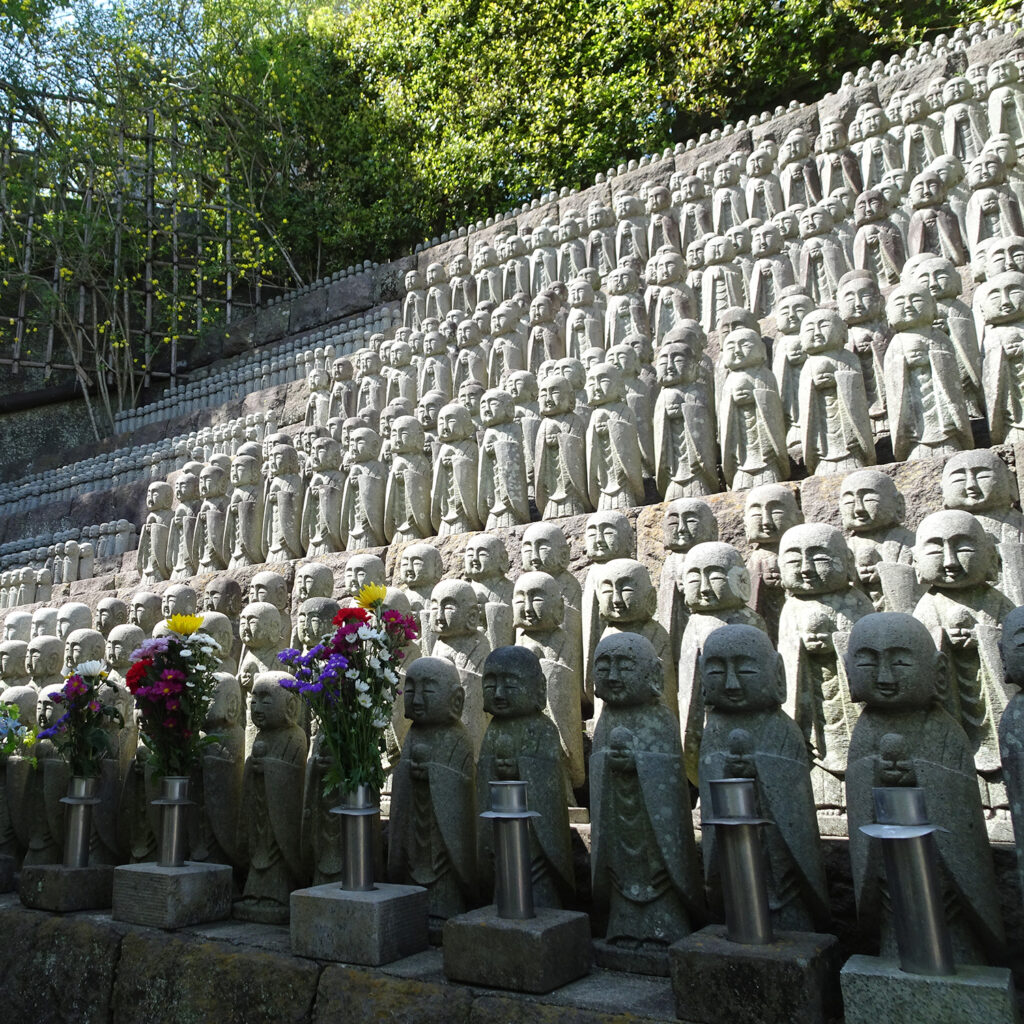The seven lucky gods or seven gods of fortune (七 福神, shichifukujin in Japanese) are supposed to give good luck and often have their place in netsuke prints or other representations. Among the seven, all the gods are not only mythical characters, one being a historical figure.
They all started as distant and impersonal gods, but gradually became much closer canonical figures for certain professions and Japanese arts. This cult is also due to the importance of the number seven in Japan, which is believed to bring good luck.
The list of the Seven Divinities of Happiness :
- Ebisu; Ebisu is the god of prosperity, fortune and fishing. He is often depicted with a fish in one hand and a fishing pole in the other. He is considered the patron saint of fishermen and traders, and is celebrated every year at New Year’s.
- Daikokuten; Daikokuten is the god of wealth and prosperity in general. He is often depicted with a large silver bag or hammer on his shoulder. He is associated with good fortune, luck and success, and is also honored at the New Year’s festival.
- Bishamonten; Bishamonten is the god of war, but also of protection and prosperity. He is often depicted in armor, holding a spear and a sacred jewel. He is associated with security, defense, wealth and prosperity, and is worshipped throughout the year.
- Benzaiten; Benzaiten is the goddess of knowledge, art and music. She is often depicted with a biwa (Japanese musical instrument) and a snake wrapped around her. She is associated with beauty, art, wisdom and prosperity and is honored during the Arts and Crafts Festival in February.
- Hotei; Hotei is the god of happiness, luck and satisfaction. He is often depicted with a big belly, a radiant smile and a bag over his shoulder. He is associated with joy, contentment, optimism and prosperity and is honored during the cherry blossom festival in April.
- Fukurokuju; Fukurokuju is the god of longevity, wisdom and wealth. He is often depicted with a long white beard, an oversized head and a pilgrim’s staff. He is associated with longevity, wisdom, wealth and prosperity, and is honored at the New Year’s festival.
- Jurojin; Jurojin is the god of luck, longevity and prosperity. He is often depicted with a white beard and eyebrows, a wide-brimmed hat and a pilgrim’s staff. He is associated with longevity, wisdom, luck and prosperity, and is worshipped throughout the year.
Together, these 7 gods represent the different aspects of happiness, prosperity and luck in Japanese culture. They are often depicted together in paintings or sculptures, and are worshipped at various festivals throughout the year.
Although their worship is mainly associated with the Shinto religion, the 7 gods of happiness have also been integrated into the Japanese Buddhist religion and are often worshipped in Buddhist temples.
The worship of the 7 gods of happiness is also popular outside Japan, especially in China and Taiwan. The symbols associated with these gods, such as fish, silver bags and pilgrim’s staffs, are often used as good luck charms and decorations in homes and businesses.
find our 7 gods of happiness shichifukujin



